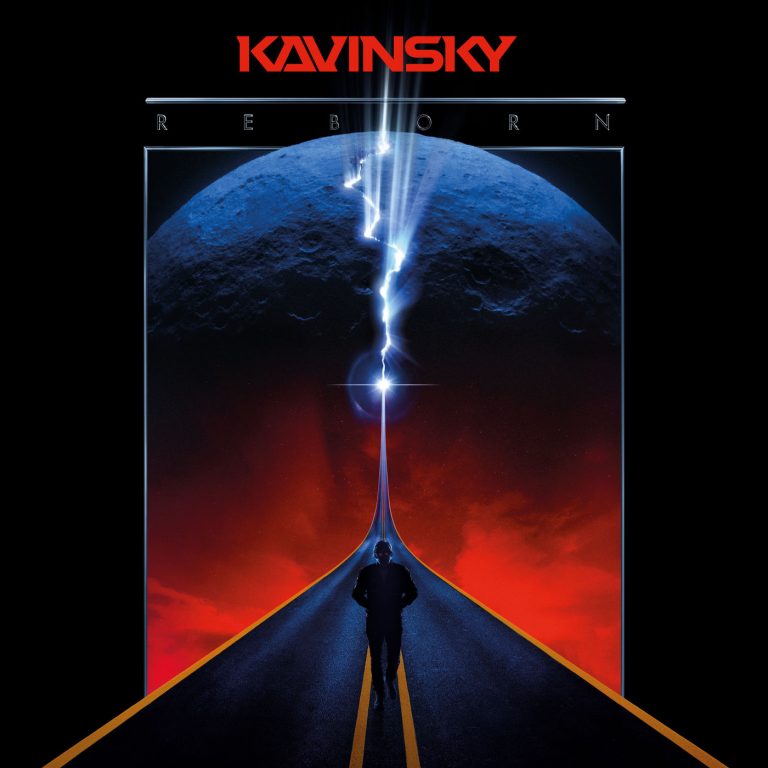One evening about six years ago I was having drinks with friends at a café in Montmartre when we noticed a guy sitting at the counter with his two dogs by his side, downing whisky as he chatted with the owner. He looked familiar, but I was unable to tell where I might know him from until one of my friends whispered “it’s Kavinsky.” A sort of local (and, to a certain extent, international) legend, spotting him a couple of years after the overwhelming success of “Nightcall” felt like a natural part of his mythology – even if, at the time, nobody knew when (or if) he was going to follow up on his debut offering.
Part of the French Touch Olympus, Kavinsky became a somewhat mysterious and elusive figure whose impact on electronic music, despite undeniable, has often been minimised by the customary naysayers. A fictional character created by Vincent Belorgey with a proper backstory that involves a 1986 Testarossa crash and a 2006 reemergence as a zombie (who incidentally is also a musical prodigy), Kavinsky may on a first glance seem to have little in common with the man behind the persona. Yet, with the arguably unexpected return to full form that Reborn represents, Belorgey has unwillingly claimed a bit of that narrative for himself; after all, Kavinsky’s previous album OutRun (which was also his first) came out almost 10 years ago.
A lot has changed in 10 years, and the music industry is no exception. The retrofuturism of Kavinsky, however, remains as fresh and relevant as ever, which only confirms the endurance of his sound and its indelible permanence in the collective imaginary. The danger, of course, would be to keep on rewriting “Nightcall” over and over again, a trap Kavinsky seemed conscious enough of in order to properly escape it: “The break allowed people to forget about me for a little bit so that when I felt ready to return, I could perhaps try new things,” he has said. And even though an instant association to a specific song or sound can be suffocating, there’s also a need to be mindful of the other side of the coin; of forcing radical change upon one’s own style only to show there’s more to it – which is prejudicial just the same.
Kavinsky’s careful approach and eventual mastery of these two forces is what characterises the clean accuracy of his delivery on Reborn. Recorded in the late Philippe Zdar’s Motorbass studios in Paris, the album unleashes an astounding journey somewhere beyond the universe, driving on an interstellar highway at maximum speed alone at dawn.
The 80s sci-fi vibe showcased by the cover doesn’t try to conceal it, either: Reborn often feels like traveling simultaneously to the past and the future in a larger-than-life overwhelmingness similar to watching a film in IMAX. It’s this complete immersion that wraps the record as a whole, rendering it as exciting as the newest sequel of your favourite superhero series.
Although the album is insanely cohesive both in terms of writing and production, its 12 tracks appear not as simple variations of a same theme but instead as intricate internal dialogues. Opener “Pulsar”, for example, is a terrific downtempo symphony, tragic and fatalistic like the best Moroder soundtracks (American Gigolo‘s “Hello Mr. W.A.M.” comes to mind), while the title-track explodes in a neo-noir fantasy and “Trigger” offers ecstatic glimpses of violins in a contained and anticipating manner that never gives too much away.
The true peak comes with “Zenith”, a stunning near-ballad with breathtaking orchestration and an evocative pathos (“We once were electric, now we’re flatlined / We’re running too late and running out of time”) that lays the neon-emotional foundation for “Zombie”, a rollercoaster ride through the opening credits of an 80s animated TV series set in an alternative dystopian future. But what if that dystopian future is now, doesn’t it make Reborn the most fitting and spectacular soundtrack for our apocalyptic times? This theme is conceptually reprised by “Outsider”‘s opening notes, which are slightly reminiscent of the beginning of The Eagles’ “Wasted Time” from Hotel California – another album portraying a parallel reality, a paradise lost in decadence. And while “Horizon” briefly sounds like a promise, it also warns of cycles repeating.
It is perhaps wise to refrain from calling something an ‘instant classic’, especially since the concept of classic is itself ever-changing as civilisation struggles to adapt to what we often insist in accepting as essential for survival. But while some vow we never had it so good, Kavinsky interpolates with the strongest of counterarguments: warmth in a synthesiser, gospel in a vocoder, beauty in disintegration. Reborn informs us we’ve been here before but can’t seem to remember when or how, or what to do with that information; so we opt to deliciously melt in faux technological surrender and isolation as the album projects our eternal paradox of brilliance through vulnerability.

